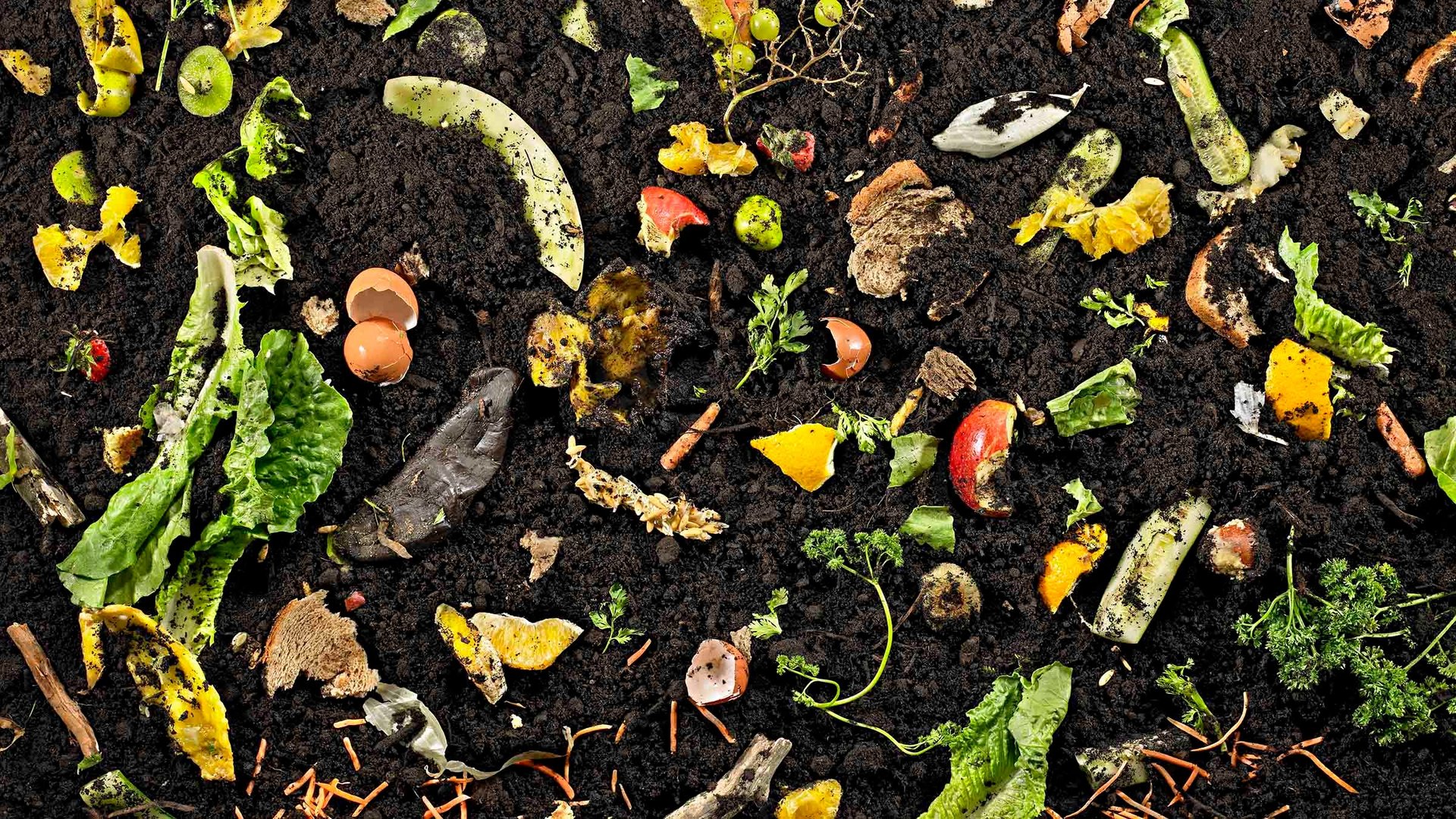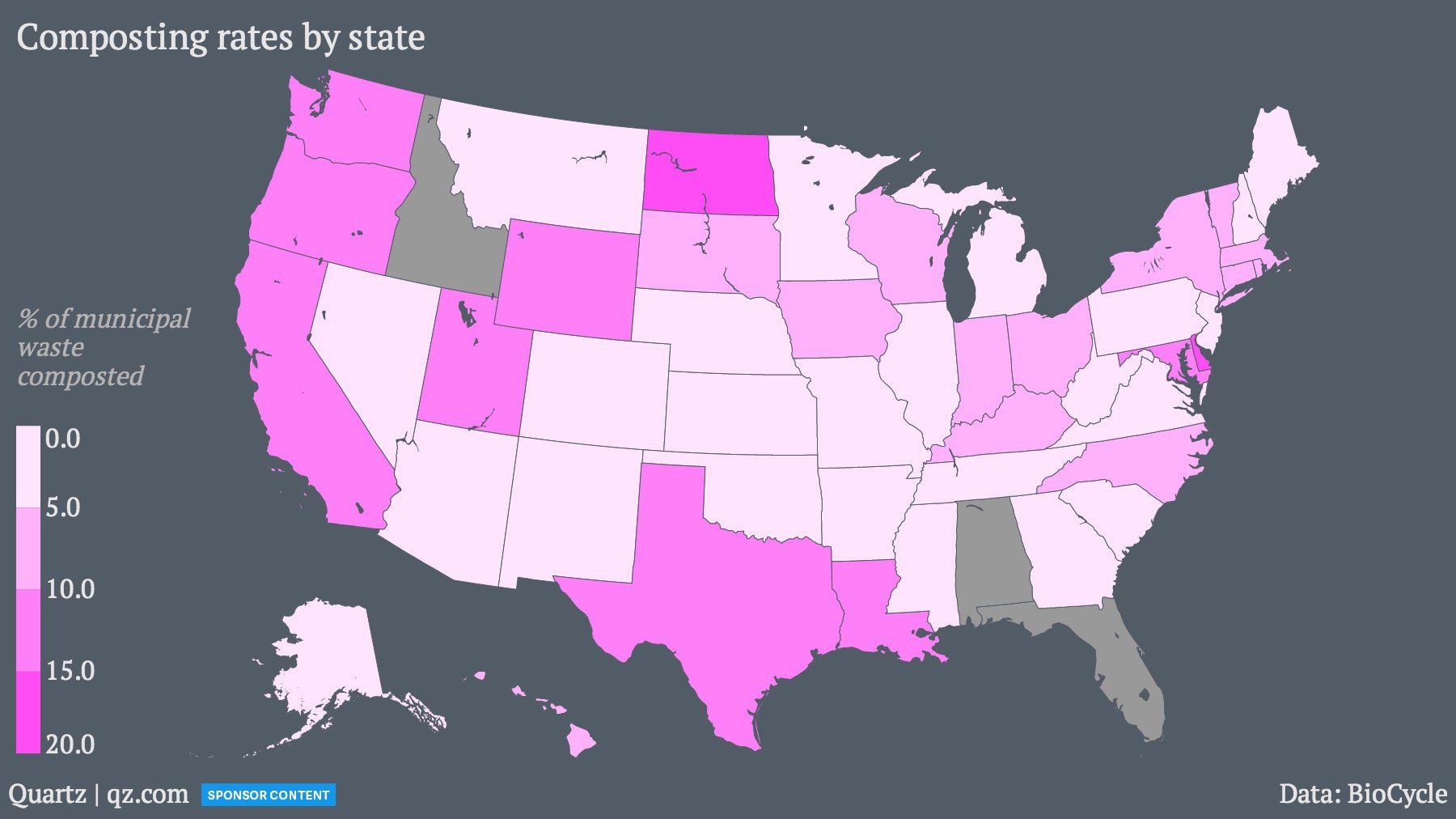These maps show how the world composts
Composting is far from underground now. The practice has blossomed into a movement. In much of the world, compost has even spread from the backyard to the curb. Yet its role in our sustainability imperative can grow much more.


Composting is far from underground now. The practice has blossomed into a movement. In much of the world, compost has even spread from the backyard to the curb. Yet its role in our sustainability imperative can grow much more.
Eco-friendly communities around the world are making composting part of their efforts. From Serenbe, Georgia to Earthsong, New Zealand, people are living with the environment in mind to various degrees–practicing green construction, organic and well-managed gardening, recycling, reliance on renewable power, and sharing of housing amenities.
Recovering waste from food is key to sustainability, as the latest EPA statistics from 2012 show (fact sheet PDF here). Americans generated 36.43 million tons of food waste and sent 34.69 million tons of that to landfills, meaning that only 1.74 million tons, or 4.8% of the total waste, were recovered or recycled.
Increased composting is becoming a clear alternative to the range of costs associated with landfill waste. Even New York City, where density and infrastructure have been obstacles in the past, began a pilot composting program last summer that is on track to become mandatory and citywide.
The west coast provides substantial inspiration. Cities like San Francisco have had large programs in place for years. A new effort in Portland reportedly cut curbside trash by 44 percent. In general, recent data mapped out here situates the western U.S. at the national forefront, though Canada’s results are even more impressive.

Europe has also shown a strong commitment to the practice. While data for the rest of the world is scarce, communities from India to Australia are adopting compost as a key part of sustainability efforts.

The rise in composting is based in its straightforward benefits. Allowing organic matter to break down naturally and putting it to use in gardens does wonders for the quality of soil and plants. Composting is also a small burden on the patient composter, as time and nature do most of the work.
Composting more current waste would dramatically reduce what ends up in landfills, but so can making more waste compostable in the first place. BASF’s ecovio is a bioplastic that is made of biobased content and is certified compostable. It can replace the materials in noncompostable plastic bags, shrink wraps, foam packaging and coatings on paper products without sacrificing the strength and performance of conventional plastics.
BASF has used ecovio in successful sustainability projects around the world, but this important amplifier of composting’s impact is still developing. Bioplastics expand the composting map. Before we overwork the earth, we must work better with it.
This article was produced on behalf of BASF by the Quartz Marketing team and not by the Quartz editorial staff.